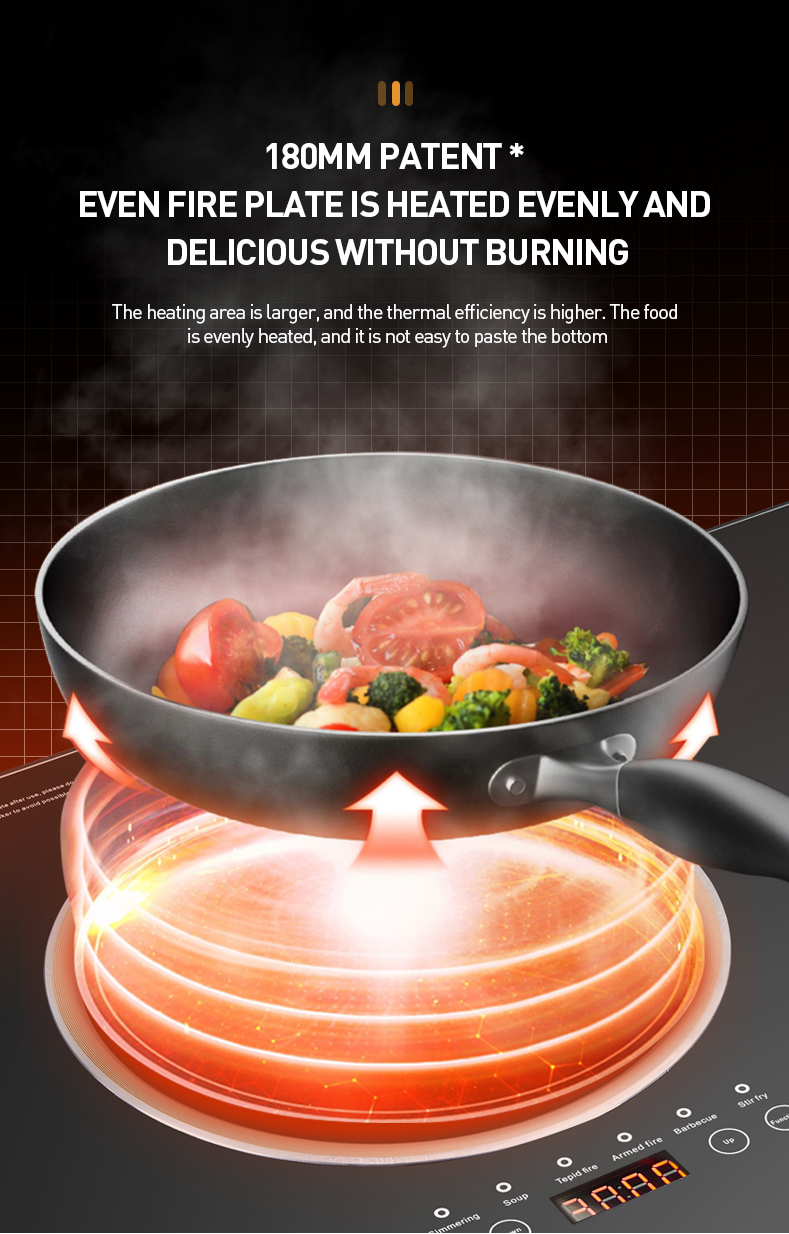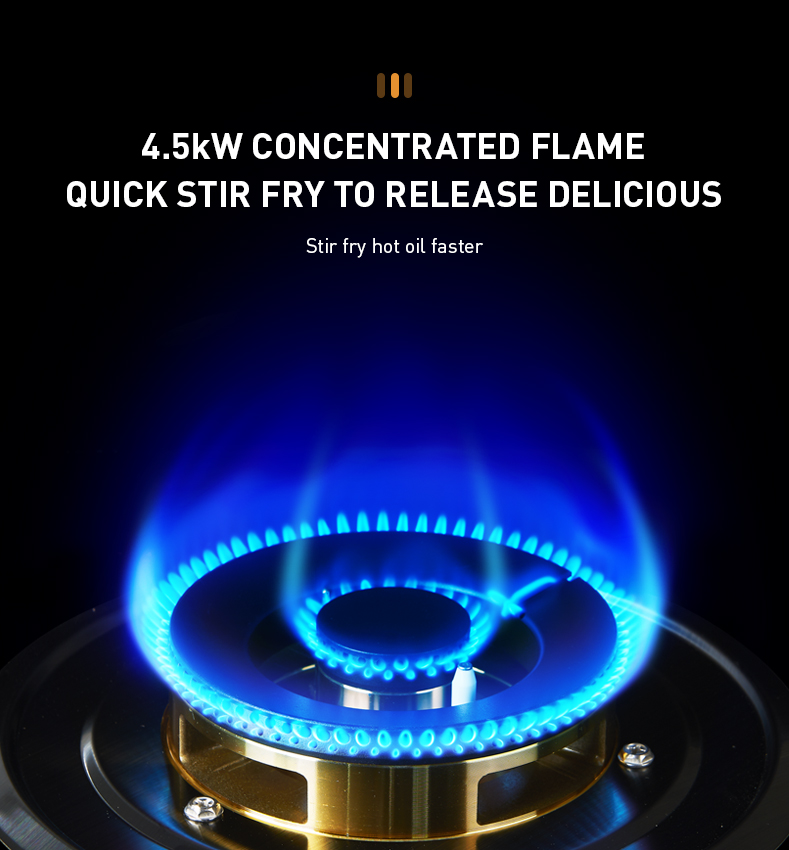As the demand for small appliances grows, the debate between induction cooktops and traditional gas and electric cooktops becomes crucial. Choosing the right cooking utensils is crucial, especially when selling online. In this article, we analyze and compare the pros and cons of induction cooktops versus traditional gas and electric cooktops, providing valuable insight into determining a better investment.
1. Efficiency and speed:
The induction cooker uses electromagnetic induction to directly heat the cookware, which has faster heat transfer and higher efficiency than gas and electric cookers. The precise temperature control and rapid heating capability of induction hobs have made them popular with consumers. On the other hand, conventional gas and electric ranges have longer heating and cooling times, resulting in slightly slower cooking times.
2. Security:
In terms of safety, induction cooker has obvious advantages. Since induction hobs only heat the cookware and not the cooking surface, they are relatively cool to the touch. This reduces the risk of burns, making it a safer choice, especially for families with children. Traditional gas stoves, while reliable, have an open flame that can pose a fire hazard if not handled properly. Rice cookers, while safer than gas ranges, still present the risk of accidental burns due to the heating coils.
3. Energy efficiency:
Induction hobs are known for their energy efficiency, as they convert nearly 90% of the energy they generate into cooking heat. Conversely, gas and electric ranges lose energy due to heat dissipation, reducing energy efficiency. With growing concerns about environmental sustainability, energy-efficient appliances are gaining popularity among eco-conscious consumers.
4. Versatility and convenience:
Induction hobs offer a variety of features, including precise temperature control, timers, and programmable settings. These advanced features provide convenience and help users achieve consistent cooking results. In addition, induction hobs are compatible with a wide variety of cookware materials for a variety of cooking methods. Traditional gas and electric ranges, while reliable and widely available, lack the advanced features and versatility that induction cooktops offer.
5. Installation and maintenance:
Induction hobs are usually easier to install because they only require a nearby electrical outlet. On the other hand, gas stoves require proper gas plumbing and ventilation, which can add to the cost of installation. Rice cookers are relatively simple to install, but may require dedicated circuitry. In addition, induction cooktops are easier to clean due to the flat, smooth surface, whereas traditional cookers often have burners and crevices that require more effort.
in conclusion:
To sum up, induction hobs prove to be a better investment than traditional gas and electric hobs when it comes to online sales of small appliances. Their efficiency, safety features, energy efficiency, versatility and convenience make them highly sought after by consumers. While both gas and electric cooktops have their advantages, induction cooktops have advantages over the competition. Whichever option consumers ultimately choose, the pros and cons must be carefully weighed, taking into account their specific needs and preferences.
If you have any inquiry for gas stove, please contact us:
Contact: Mr. Ivan Li
Mobile: +86 13929118948 (WeChat, WhatsApp)
Email: job3@ridacooker.com
Post time: Sep-05-2023


